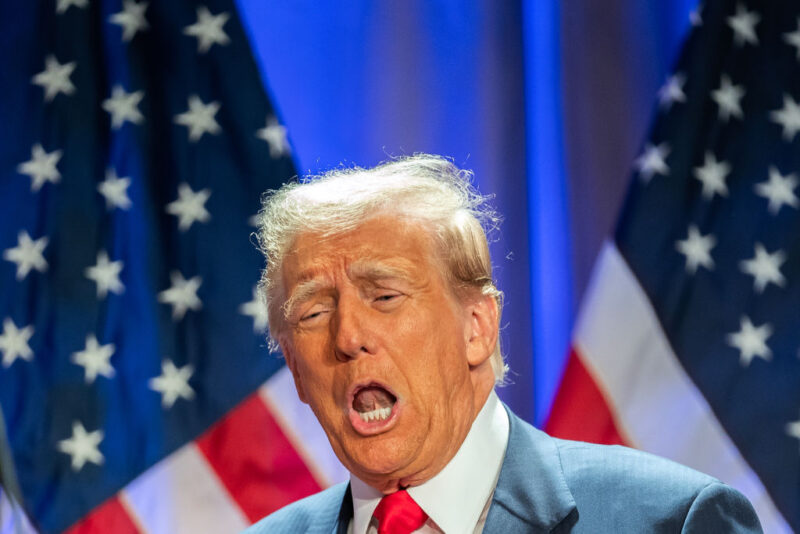A Trump Comeback: The Threat to Black Progress
Another Donald Trump presidency raises deep concerns for Black communities across America. From the economy to healthcare, civil rights to policing, Trump’s first term left a legacy that disproportionately harmed Black Americans, reinforcing systemic inequalities rather than addressing them. His policies were not mere political strategies—they translated into real setbacks for the lives, well-being, and progress of Black people in the United States. As we consider what the next four years will look like, it’s essential to examine his track record and its impacts on Black communities.
In Trump’s economic agenda, tax cuts for corporations and the wealthy were heralded as a way to stimulate growth and job creation. But the effects of these policies were far from equitable. They contributed to one of the largest wealth gaps in modern history, with benefits that largely bypassed working-class and marginalized communities. Black families, already at a generational disadvantage due to historical economic exclusion and redlining, saw little relief. Meanwhile, Trump’s administration proposed cuts to social programs like food assistance and affordable housing, further impacting Black households disproportionately. His policies deepened the cycle of poverty, leaving Black families struggling to bridge a growing economic divide.
Trump’s approach to criminal justice was equally troubling. His administration repeatedly supported aggressive policing tactics and backed away from initiatives aimed at addressing police violence. Trump’s calls for “law and order” seemed to embolden law enforcement agencies to use more force, with little regard for accountability. Under his watch, funding for community-police relationship programs was slashed, while his endorsement of “stop and frisk” policies raised concerns about racial profiling and policing that targets Black individuals. For many Black Americans, this approach was not about protection but control—policies that heightened a sense of insecurity and distrust rather than promoting real safety and justice.
His administration also took steps that threatened civil rights gains won over decades of struggle. The Department of Justice, which had been instrumental under previous administrations in holding law enforcement accountable, saw its Civil Rights Division deprioritized. Trump’s appointees moved away from investigations into police departments with histories of racial discrimination, which had been a critical tool for civil rights enforcement. Furthermore, his administration worked to dismantle diversity and inclusion programs, viewing them as unnecessary. These actions set back representation and overlooked the structural challenges that continue to hold Black people back in schools, workplaces, and public life.
Healthcare policies under Trump further exacerbated the risks faced by Black Americans. By attempting to dismantle the Affordable Care Act (ACA) and cut Medicaid funding, Trump’s administration jeopardized healthcare access for millions. Black communities, already facing higher rates of chronic conditions like diabetes and hypertension due to long-standing healthcare disparities, were disproportionately impacted by these policies. The removal of protections for pre-existing conditions would have stripped away coverage from individuals who needed it most, intensifying health inequalities and increasing the likelihood of medical debt.
Immigration was another focal point of the Trump administration, with policies that stirred fear within Black immigrant communities. By implementing aggressive deportation tactics, Trump’s stance on immigration placed additional pressures on Black families from the Caribbean, Africa, and Latin America who had sought safety, opportunity, and stability in the United States. The administration’s narrowing of asylum policies and attacks on birthright citizenship sent a clear message: certain communities, including Black immigrants, were not welcomed or valued.
Education, too, suffered under Trump’s tenure. By diverting funds toward private and charter schools through policies that disproportionately benefited wealthier, predominantly white families, public schools serving predominantly Black and lower-income communities were left with fewer resources. The consequences have been severe, affecting everything from classroom materials to teacher retention, and widening the education gap that has long plagued Black students.
For Black Americans, a Trump presidency is more than a difference of political opinion—it is a reminder of policies that deny progress, and in many cases, actively work against it. His administration’s approach to economic, social, and political issues often overlooked, and in some cases undermined, the needs of Black communities. A second term threatens to deepen the setbacks, reinforcing systemic barriers rather than dismantling them. In a time when the fight for equity and justice is more urgent than ever, Black Americans cannot afford policies that roll back the progress we’ve fought so hard to achieve.
Discover more from mecca
Subscribe to get the latest posts sent to your email.
